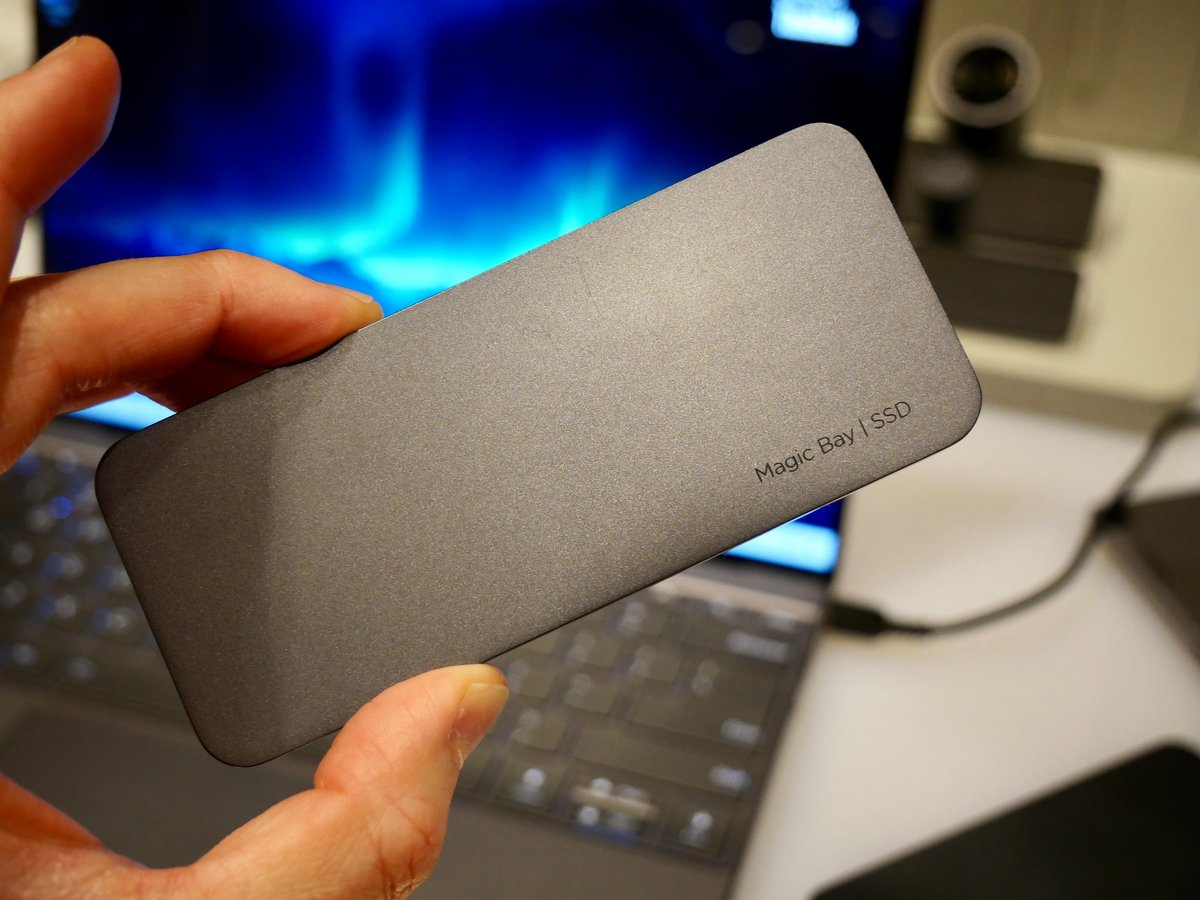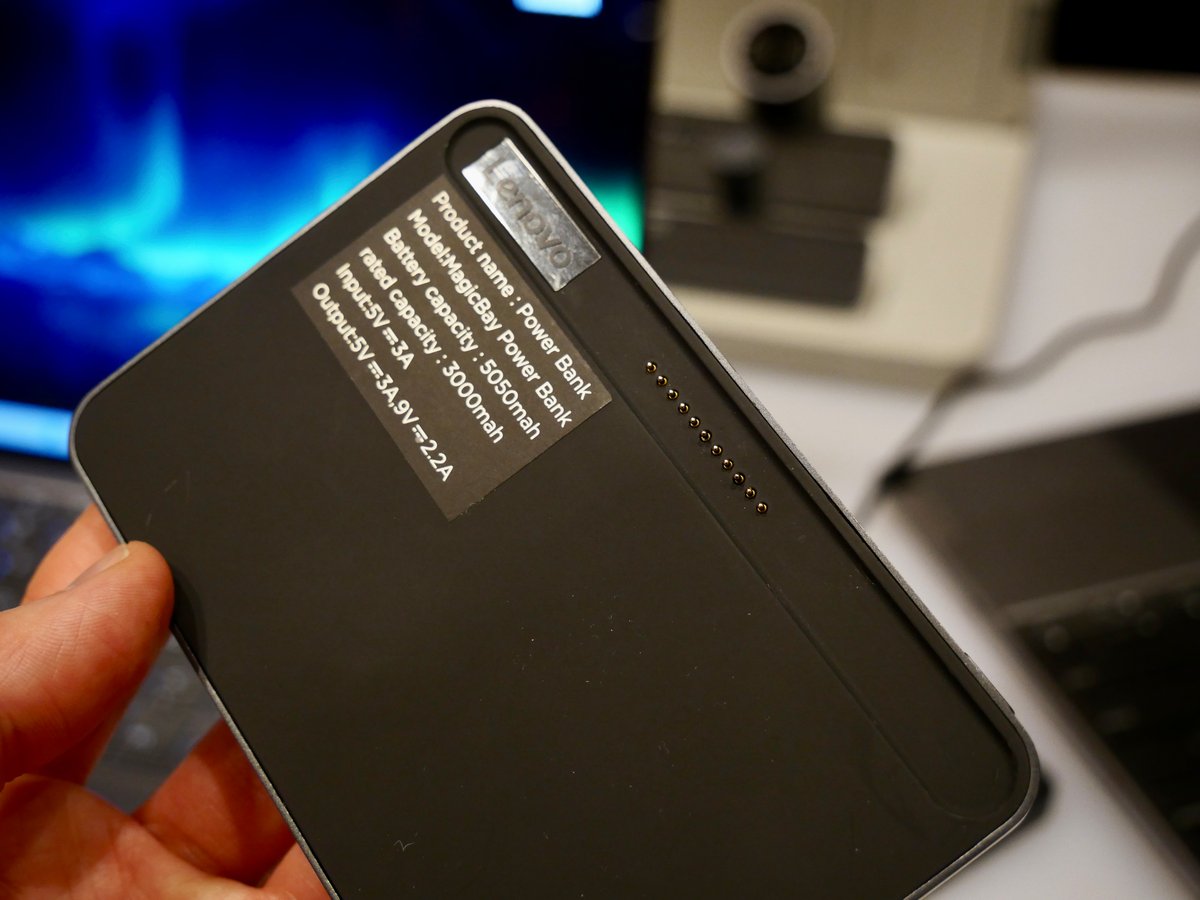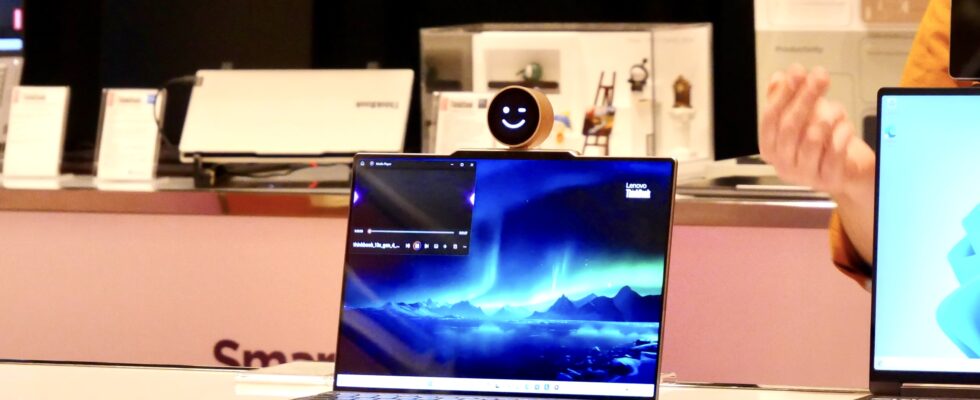The Chinese manufacturer is expanding its Magic Bay range introduced last year, with accessories that are as well thought out as they are original.
Remember Motorola’s Moto Z? Released in 2016, the device could accommodate different modules dedicated to it, ranging from the external battery to the pico-projector. The idea did not catch on, and the brand’s current models have not retained the idea.
However, Lenovo, the company that owns the smartphone maker, has not abandoned the concept and has taken it up for its line of laptops. She even took advantage of CES 2024 to prove that her imagination has not yet reached its limits.
Magnetic modules for all needs
What is the biggest drawback of a laptop? The answer is obviously subjective, but many will agree that the webcams on these devices are rarely of high quality. However, in the age of Zoom meetings and the like, it is a component that is gradually gaining importance, and it is perhaps time for things to change.
Enter the Magic Bay Studio, a 4K webcam that connects to the back of select ThinkBook computers using magnets and a series of pins. Lenovo also went further by incorporating two speakers into its module for a better listening experience. So, instead of integrating a high-quality camera module into its laptop, which is not essential for everyone, the Chinese manufacturer opted for modularity.
Of course, there was no question of stopping there. Once the Magic Bay magnetic port was in place, Lenovo set about creating other modules. If last year we were treated to an extra light, another 4K webcam and an LTE module, the company is going a little further in 2024 with a removable SSD, allowing you to add space on-the-fly storage. She also presented a Magic Bay external battery and an SD card reader, which our teams on site were able to discover. The legacy of the Moto Z is clearly visible, it remains to be seen whether it will appeal to users.
A concept that needs to mature?
For the moment, few computers are compatible with these modules. The ThinkBook 16p Gen 5 and ThinkBook 13x Gen 4 are the main ones affected, Lenovo having not chosen to extend the functionality to the rest of its new models. Nothing surprising in this, since the company still seems to be fumbling a little with its Magic Bay port, and we will still have to wait before seeing the concept become more popular in its catalog, if it ever happens.



In the meantime, ideas are flowing from the Chinese manufacturer, who showed us some astonishing concepts. Among them, a 10-inch screen which can be grafted above that of the computer, or even a small mirror surrounded by an LED strip which could, for example, serve as additional light for video conversations. Too bad the webcam module cannot be used simultaneously…
Lenovo also unveiled a fan module, as well as an aromatherapy diffuser module, to perfume your workspace. The company goes further by offering a small circular screen displaying a smiling little man (visible in the first image of the article). This is supposed to synchronize with the activities of an AI companion used on the computer, such as Copilot, and give it visual expressions. Yes, artificial intelligence is definitely never far away at CES 2024.
Source : PCMag

2